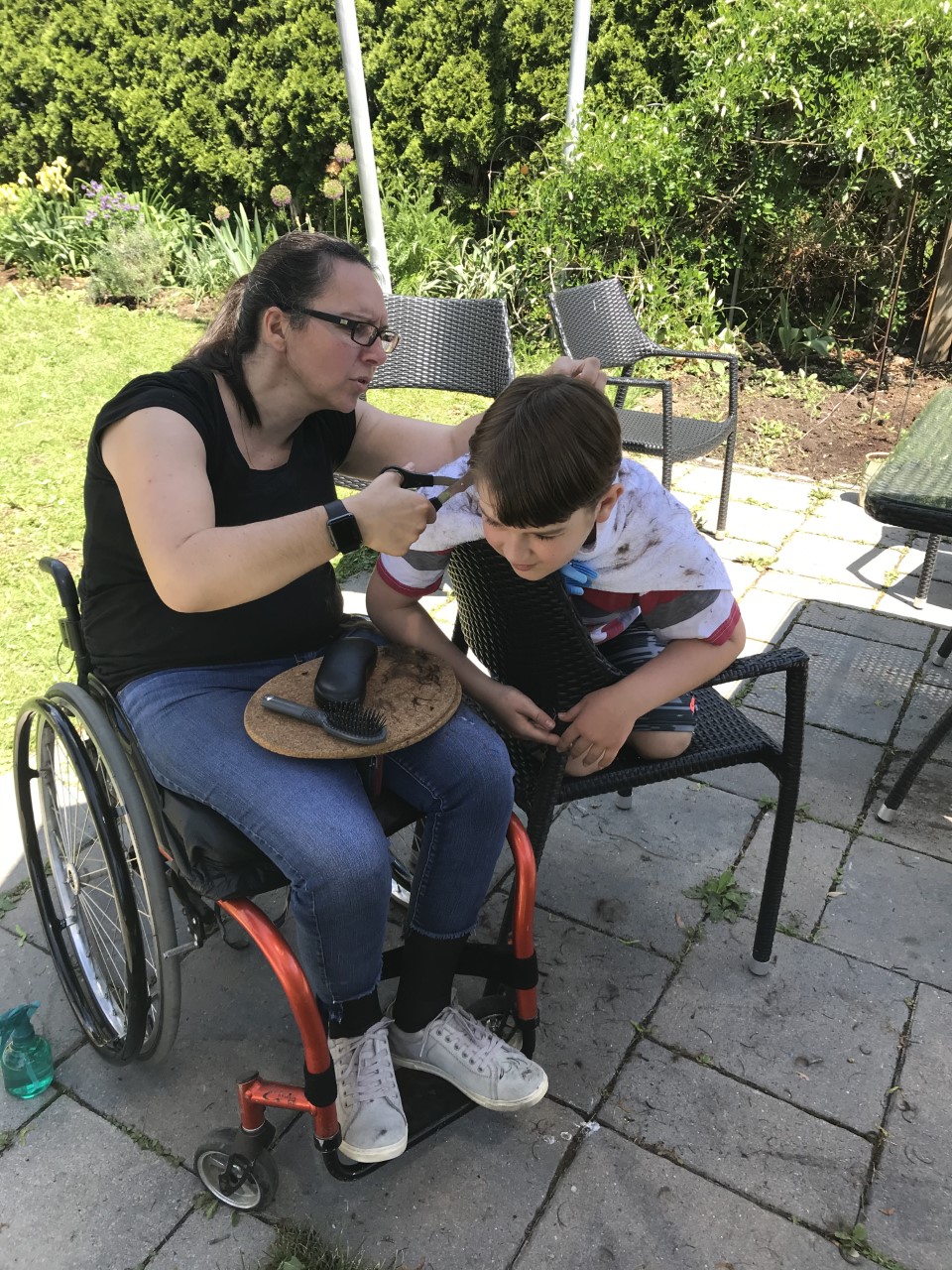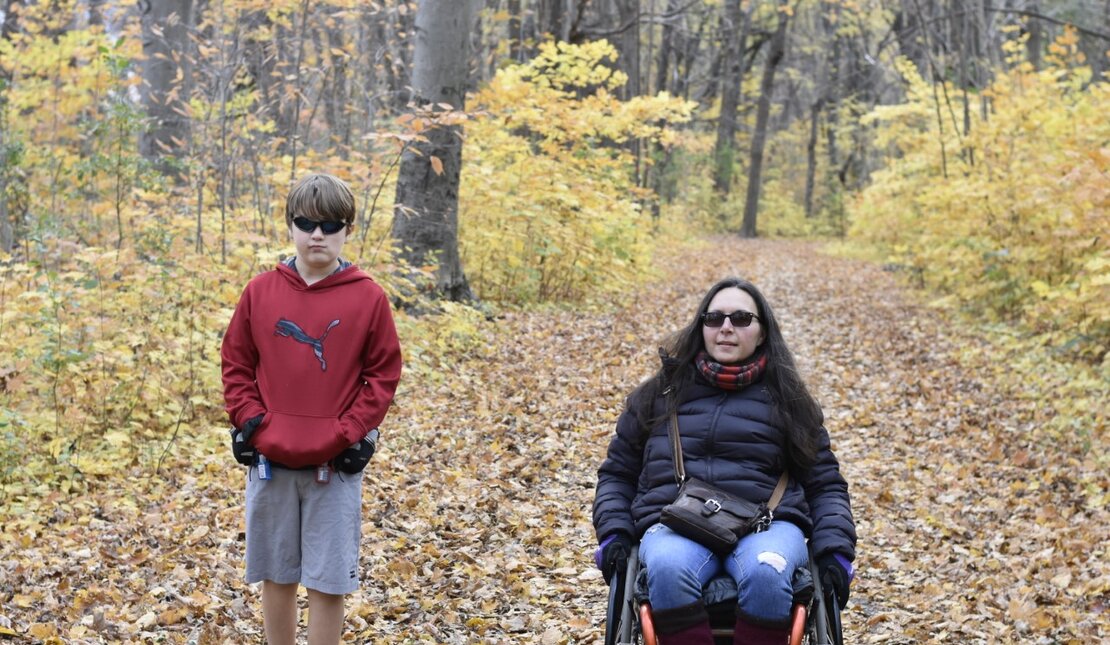Parenting in the Age of COVID
COVID-19, a word that did not even exist just over a year ago is now a reality we all have to face. Every day, since mid-March, we have been bombarded by information from our local, provincial and federal governments. We all had to learn to stay home to stay safe, to wash or sanitize our hands more frequently, to wear a mask, and to select who to socialize with at a safe distance. As a single parent with high-level Spinal Cord Injury (SCI), COVID-19 brings on even more concerns.
First off, there is a potential serious risk to my physical health. To understand, you need to know that someone living with an SCI has different adjacent issues. It is not just about not being able to use my legs. At my injury level (T2), I do not feel or control any muscles below my armpits. This means that, for example, I do not have control over my abdominals, which means I cannot push up my diaphragm when I need to cough. My ability to cough needs to be supplemented by an additional physical force (i.e. someone pushing upwards on my diaphragm as I am coughing). A simple cold can have pretty overwhelming symptoms that can easily turn into pneumonia. COVID-19 then becomes Enemy No. 1.
For me, the risk of contracting COVID-19 (due to its potential serious health impact) has reactivated the trauma I had as a result of my car accident 8.5 years ago, of facing death and leaving my son an orphan. The trauma today of the overwhelming amount of contradictory and not-specific enough information (pertaining to the reality of persons and parents with disabilities) made my anxiety levels rise. To top it all off, my mom, who is my personal aid, is also in the most vulnerable group due to her age and my son, who is 10, might be a conductor of transmission.
Most days, I end up confused and fearful beyond belief.

The Importance of Access to Nutrition
This overarching picture is also influenced as the day-to-day issues and anxiety fluctuate. In the first few months, we did not know when, nor how, we would get food into our house. We were not going in stores ourselves and most grocery delivery websites had crashed, leaving us stranded. We were lucky to have wonderful friends who shopped for us. Despite their biggest hearts, certain foods were out of stock on a regular basis.
For someone with SCI, nutrition has a huge impact on my digestive system. The wrong food can lead to diarrhea, blockage, intestinal pain, nausea, and a condition called automatic dysreflexia. This condition happens when our bodily system gets overwhelmed. It leads to hypertension and bradycardia and tachycardia. This condition is serious enough that it leads us to the hospital, which is a place I am trying to avoid visiting.
Learning to Respect Personal Space
Homeschooling is tough, especially when your child is not yet fully independent. I lost my bubble time. That time where I could restore my energy. Hearing the word ‘maman’ had come to irritate me to the highest degree. As any child his age, he needed me to be his mom, his teacher, his friend and playmate, his educator, and during summer, his camp counsellor. We had to learn, as a family unit, to give and respect each other’s space and personal time, without taking it personally. We organized daily zoom meetings amongst friends to ensure our kids would continue to socialize. And as my son turned 10 in August, I had to plan a celebration I felt I could afford to attend, according to the risk levels.
Finally, de-confinement protocols make it hard to know which steps I need to take to continue to protect my family. Social media sometimes adds to my guilt when I see ‘bring our kids back to school’ posts. Although I want Thomas to be in a position to socialize with his peers, as a parent with a disability with higher health risk, a return to school may not be the right choice.
The parameters of our standards of living have changed. Each family needs to adjust according to their particular context and personal comfort levels.
It is not always easy, but it is part of parenting!







